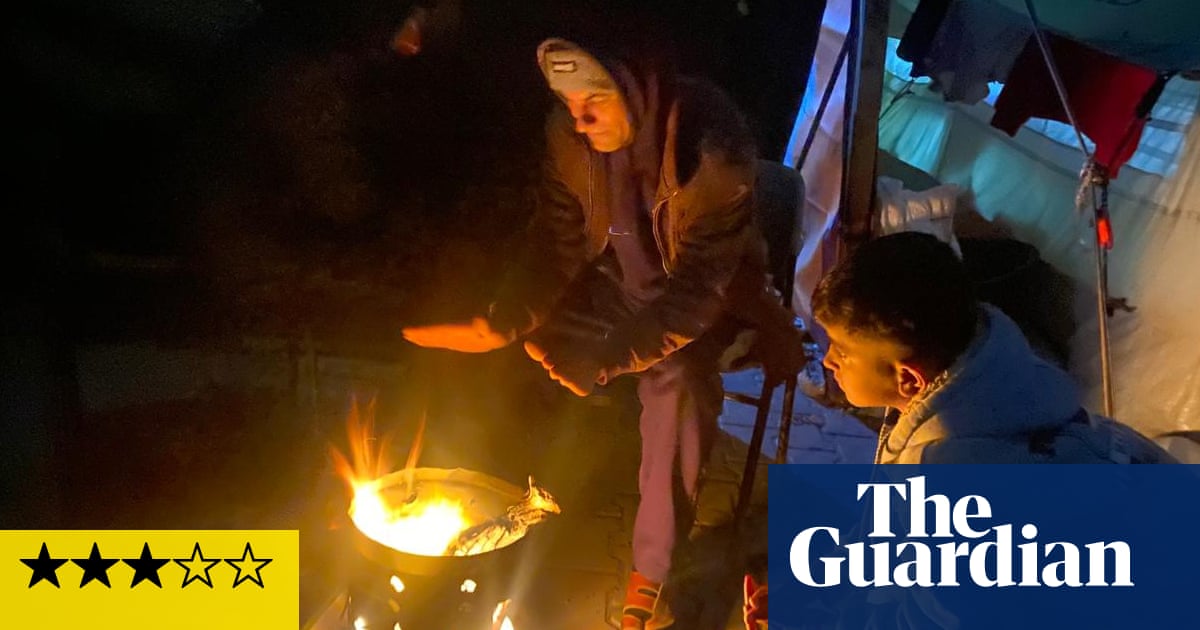
Made on an infinitesimal budget but with compassion, empathy and consideration, this documentary is the product of an encounter between two journalists. Mike Joseph is a Welsh Jew whose mother just barely escaped the Holocaust (the rest of her immediate family weren’t so lucky); Sami Abu Salem is Palestinian reporter living in Gaza, who has lost members of his family and close friends in the violence inflicted on Palestinians since the founding of Israel. His mother remembers the slaughter that killed dozens of people in her village, Bureir or Burayr, in 1948, a decimation wrought as Israelis established the kibbutz Bror Hayil nearby.
Years later on that kibbutz’s farms, Abu Salem worked as a young man, excited to be visiting the location of his family’s home town, even if it had all been wiped out. He even tried to find the eucalyptus tree his mother told him she once planted as a child. Now in middle age, Abu Salem tells Joseph about his family’s history on a Zoom call, the camera filming Abu Salem on the screen and cutting away to Joseph sitting at his desk. In voiceover, Joseph apologises for the seeming one-sidedness of the setup, which seems to favour Joseph as the interviewer-protagonist, but it couldn’t be helped. The complementary footage shot in Gaza at the same time by Abu Salem was destroyed when bombing commenced in the wake of Hamas’s brutal 7 October attack.
The conversation they did manage to record before all hell broke out is moving and thought-provoking. The two men emphasise how much they have in common as children of trauma, rather than what might divide them. The film flashes up quotations and factoids to underscore key rhetorical points, and there is no doubt that – like so many liberal Jews looking at what’s happening in horror – Joseph is appalled to see the descendants of the Holocaust killing another people on a mass scale. Although Joseph isn’t in danger of having his home bombed to smithereens, there’s no disagreeing with Abu Salem when he points out that the older man in the UK has taken on a very brave project with this film.
The final section of the film, shot after the attacks on Gaza began, reveals how much Abu Salem and his family are suffering as they live in tents, struggle to find water, food, firewood and sanitary essentials they hardly needed to think about a year ago. When Joseph puts quotes on screen from his grandfather, questioning his own choices about leaving or staying in Nazi Germany, and expressing discomfort with how the Palestinians were being treated by migrant Jews trying to establish a homeland before 1939, the parallels are chilling. Even the amateurishness of the film’s production, with shots where Joseph has to check his notes on his phone while doing walk-and-talk bits to camera, feels somehow affecting, suggesting how hard it is to get financing to tell a story that questions Benjamin Netanyahu’s quest for vengeance.
Source: theguardian.com
















